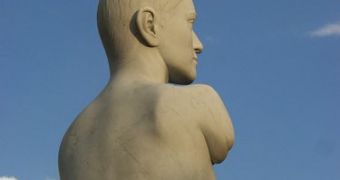Researchers say that the damage to the nervous system is what gives some people who have lost a limb the feeling of a phantom limb, and that this phenomenon is not so rare after all.
The phantom limb feeling is the impression that the amputated arm or leg is still there, but it can also occur to people who have suffered a stroke and have weakened limbs.
In these cases, an arm or a leg might feel that it is a completely different position or even that it is moving when it's not.
In non-amputees, cases of phantom limbs were considered extremely rare but a new study contradicts this belief and reports that over half of patients recovering from a stroke, could experience the phantom limb sensation.
This study was carried out by Dr Daniel Antoniello from the Albert Einstein College of Medicine, New York, along with colleagues from the Universities of Colorado and Florida, and New York University.
They have interviewed 50 post-stroke patients, in an attempt of establishing how common phantom limbs were and also to find out the characteristics of such sensations.
Out of the 50 interviewed people, 27 had experienced phantom limb sensations, and many of them on a daily basis.
They gave examples of moving to adjust their position in bed, and discovered that their arm was underneath them, instead of beside them, or feeling their toes or fingers wiggling, even though they were not.
Some of them were even able to control their phantom limb, like scratching the arm to scratch an itch, without the itching going away.
The number of real cases differs from the small figures reported and Dr Antoniello thinks this is simply due to the fact that “patients fear being labeled 'crazy' and are less likely to report these sensations than other symptoms.”
Dr Antoniello adds that this “study sheds light on how the phenomenal experience of one's body can be altered after neurological damage.
“Remarkably, some of these individuals are able to control their phantom limbs with near total volition.
This report has identified a group of patients that provide a valuable opportunity to explore how the brain constructs the conscious perception of the body,” he added.
The study was published in the October 2010 issue of Elsevier's Cortex.

 14 DAY TRIAL //
14 DAY TRIAL //